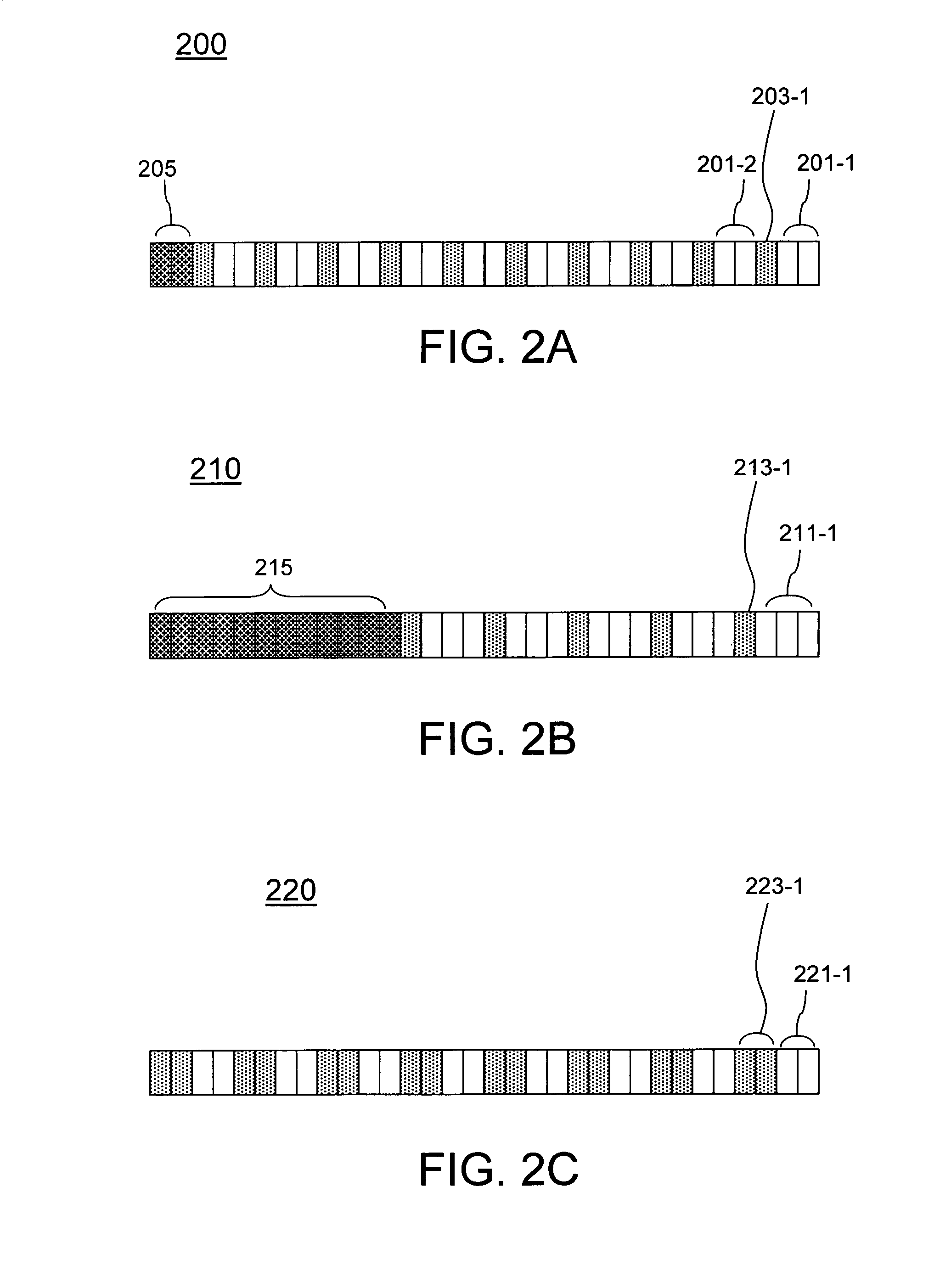Error correction using finite fields of odd characteristics on binary hardware
a technology of binary hardware and odd characteristics, applied in the field of error correction using finite fields of odd characteristics on binary hardware, can solve the problem of inefficient allocation of 32 bits of register space for operations, and achieve the effect of reducing the need for special modulo-p hardware and speeding up computations
- Summary
- Abstract
- Description
- Claims
- Application Information
AI Technical Summary
Problems solved by technology
Method used
Image
Examples
example 1
[0121]A numerical example illustrating the approach shown in FIGS. 3 and 4 will now be described with reference to FIG. 5. The operations described below can be carried out using a system such as system 100 shown in FIG. 1, which has been previously described. FIG. 5 illustrates register contents resulting from carrying out the operations as described above with regard to FIGS. 3 and 4. In FIG. 5, reference numerals 501–517 refer to 32-bit registers, and the binary data stored within the registers 501–517 are configured according to a single guard-bit representation. In addition, in this example the binary data represents field elements of the finite field GF(310), and the characteristic p is given by p=2m−1=3. Accordingly, M=2, and 2 bits of register space are allocated for each coefficient of the finite field element. A single guard bit (lightly shaded bit locations) separates adjacent binary data representing adjacent coefficients of the finite field element. In addition, in this...
example 2
[0213]A numerical example illustrating the approach shown in FIG. 14 for p=2m+1 will now be described with reference to FIG. 15. FIG. 15 schematically illustrates a collection of registers 1501–1521 with exemplary register contents stored therein according to the single-guard-bit representation. Each register 1501–1521 comprises 32 bit locations in this example according to a 32-bit architecture. In this particular example, computations are carried out using binary data representing field elements of GF(56), where p=2m+1=5, and m=2. Accordingly, m+2=4 bits are allocated for each coefficient of the field element (not including guard bits), and adjacent 4-bit groups are separated by a single guard-bit position (lightly shaded regions). In addition, in this example there are two unused bit positions (darkly shaded regions) at the most significant bit positions of each register. The computations described below can be carried out, for example, using a processing system, such as processi...
PUM
 Login to View More
Login to View More Abstract
Description
Claims
Application Information
 Login to View More
Login to View More - Generate Ideas
- Intellectual Property
- Life Sciences
- Materials
- Tech Scout
- Unparalleled Data Quality
- Higher Quality Content
- 60% Fewer Hallucinations
Browse by: Latest US Patents, China's latest patents, Technical Efficacy Thesaurus, Application Domain, Technology Topic, Popular Technical Reports.
© 2025 PatSnap. All rights reserved.Legal|Privacy policy|Modern Slavery Act Transparency Statement|Sitemap|About US| Contact US: help@patsnap.com



